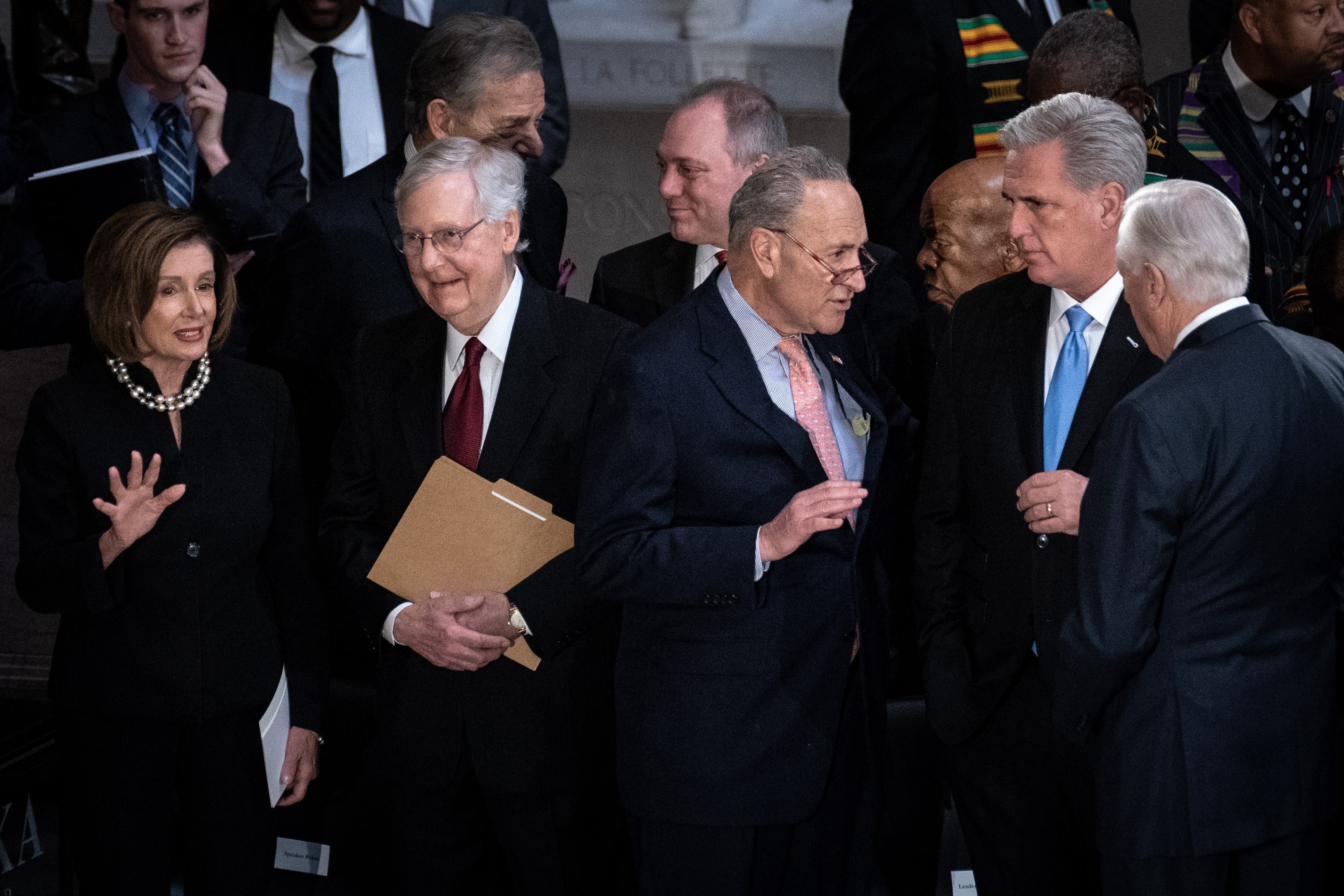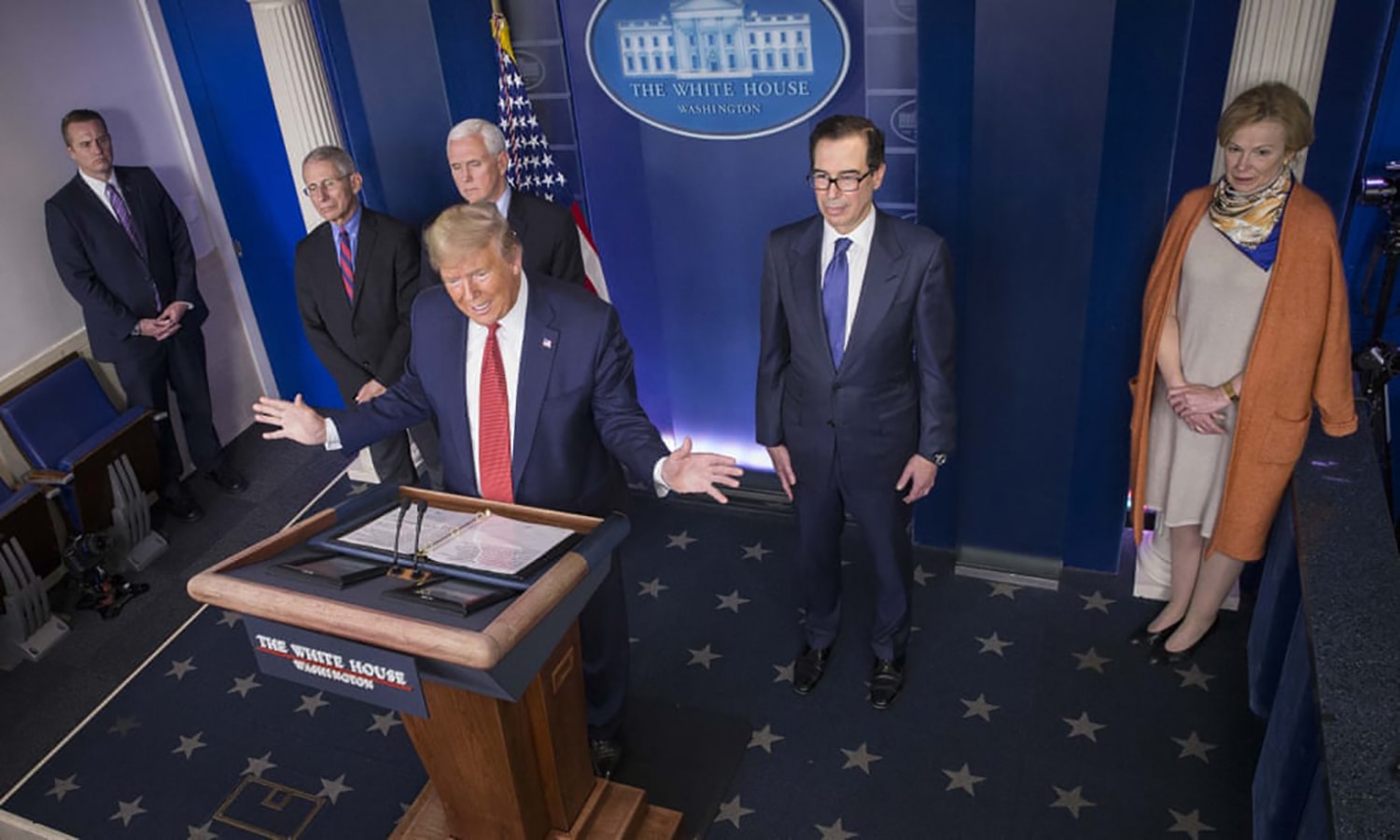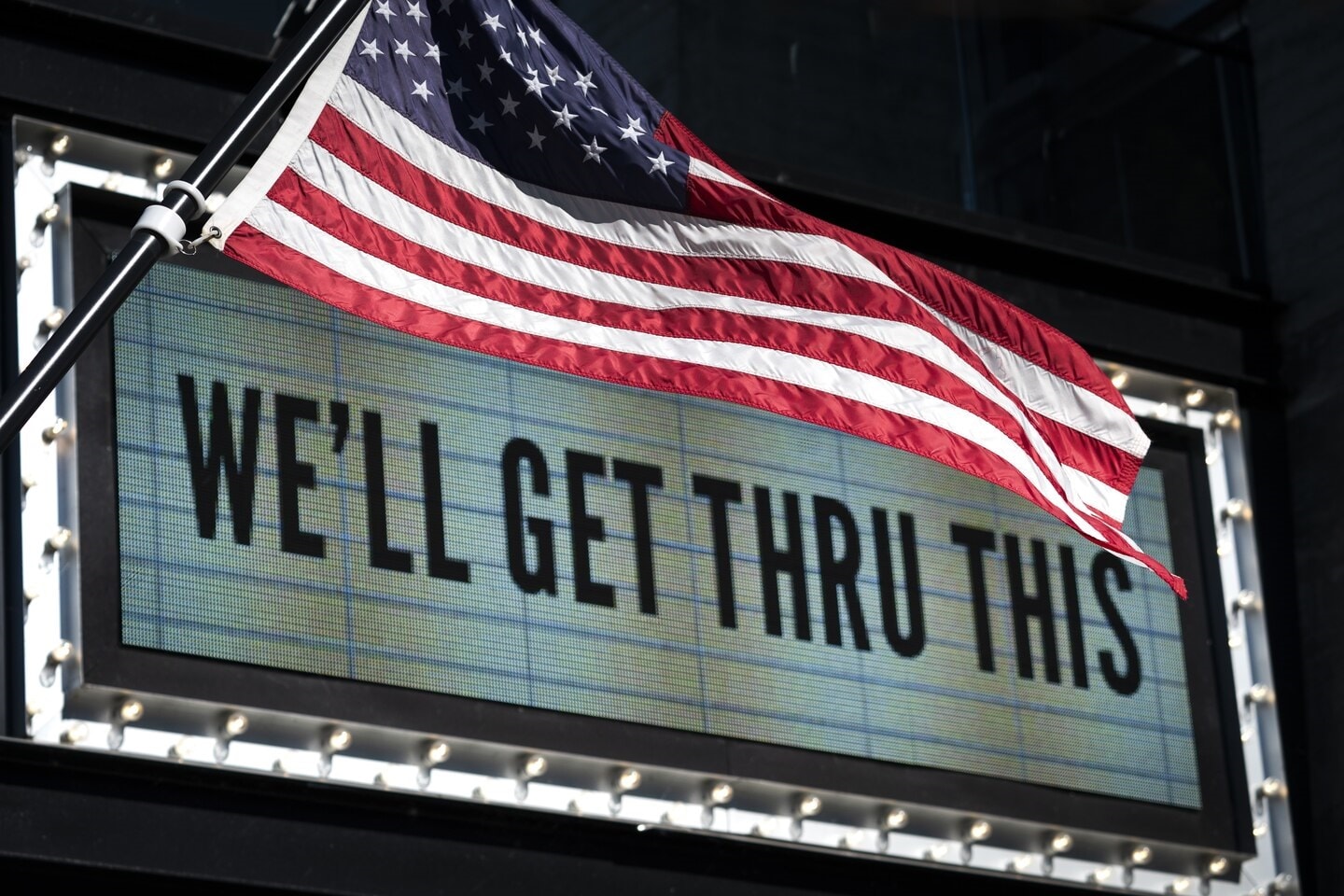America lacks the most powerful 'weapon' in the 'new war'
(Baonghean) - Sunday (April 12) is a memorable milestone in the fight against the Covid-19 pandemic in the United States. However, it is not a happy milestone when the United States becomes the world's leading country in all indicators, from the number of people infected with the SARS-CoV-2 virus to the number of people dying from Covid-19. The United States is truly going through the most difficult days of the pandemic, but it lacks the strongest "weapon", which is solidarity.
Debate over bailout money
The United States is the world's number 1 economic power - there is no doubt about this statement. That is why many countries felt "overwhelmed" when the US passed an economic relief package of up to 2,000 billion USD - a record number in the history of US relief, and also a number that no country can "touch" when trying to support the economy against the terrible impact of the epidemic. But while still engrossed in closely following the continuously "jumping" numbers on the chart showing the number of people infected with the virus and deaths from Covid-19, not many people pay attention to the detail that the 2,000 billion USD relief package is the result of a "marathon negotiation" between the White House, Republicans and Democrats in the Senate. Up to now, when millions of Americans are unemployed, thousands of businesses have had to temporarily suspend production and are waiting to receive support from this $2,000 billion package, the arguments between Republicans and Democrats have not yet been resolved.
 |
| Republican and Democratic lawmakers disagree sharply over the $2 trillion relief package. Photo: Getty |
Over the weekend, Senate Majority Leader Mitch McConnell and House Minority Leader Kevin McCarthy said they would reject Democrats’ demands for more small business relief. Senate and House Republican leaders said half of the small business aid had already been spent in the first week, so Democrats should wait for other negotiations on a larger relief package in the coming weeks to address other issues.
The move by Republican leaders is seen as a response to Democrats' efforts in the middle of last week to block Republicans from "pouring" more money into the unemployment benefit program. Republican Senators Mitch McConnell and McCarthy have criticized Democrats for turning citizens who need benefits into "political hostages" amid the Covid-19 "storm". Meanwhile, Democratic lawmakers argue that support for small businesses and some other items such as support for local governments and support for hospitals should also be prioritized in the government's $2,000 package.
The battle over aid has spilled over from Congress to the state level, with governors from both parties pushing for more aid for their states. New York Governor Andrew Cuomo and Maryland Governor Hogan are leading the charge this weekend, both urging Congress to provide an additional $500 billion to states to address the shortfalls created by the pandemic. Cuomo and Hogan have warned that without aid, states will be unable to provide critical services, severely impacting public health care, economic recovery efforts, and putting people back to work.
 |
| US President Donald Trump announces the Covid-19 epidemic situation at a press conference at the White House. Photo: The Guardian |
The Trump administration is expected to begin bipartisan negotiations on the details of a relief package for each target group today (Monday, April 13). But analysts say there are many signs that the possibility of the two sides ending the stalemate is still very far away.
Covid-19 - political football
The controversy over funding is just the latest manifestation of the divisions in American politics over the response to the Covid-19 pandemic, which have been evident since the outbreak and have repeatedly become flashpoints in the media.
As the Covid-19 “storm” sweeps across Europe and the US, many people are comparing what is happening in the UK and the US to see the difference between the two words “unity” and “division”. Nearly 4 years have passed since the UK held a referendum on whether to “remain” or “leave” the European Union and the US held a presidential election with Donald Trump winning, both the UK and the US are witnessing deep divisions in society as well as in politics. But in the UK, Covid-19 is playing a role as a factor of social healing after fierce debates about the Government’s response. Many people have noticed that, since the Queen’s speech to the nation and since Prime Minister Boris Johnson was hospitalized for intensive treatment, the British people have understood the urgent situation the country is facing, and they understand that unity is the strongest “weapon” for the UK to defeat Covid-19. That solidarity is clearly demonstrated in a recent survey conducted by YouGov, in which 94% of British people support the government's anti-Covid-19 measures and only 3% oppose them.
 |
| The US is currently the country with the highest number of people infected and dying from Covid-19 in the world. Photo: AFP/Getty Images |
Meanwhile, the picture in the US is completely opposite. Although President Donald Trump has taken many drastic steps, the opinions of the American people are still clearly divided into two extremes when commenting on the government's response. 48% of Americans rate the government as doing a good job in preventing the Covid-19 epidemic, but the number of people criticizing the government is equally high - 47%. The assessment of the US government's response is also heavily partisan, with 77% of Republicans approving of the government's measures to prevent the spread of Covid-19, while the figure for the Democratic Party is only 27%. This huge difference - even contrast - is a challenge for anyone who intends to seek an honest and objective assessment of what the Donald Trump administration is deploying in an unprecedented war.
Partisanship in American politics is also reflected in the way states in the US have responded to the pandemic. “Blue” states - considered Democratic strongholds - have taken more drastic steps than “red” states - representing the Republican faction. Typically, “blue” states New York and Washington quickly imposed travel restrictions, requiring people to stay home, closing bars and restaurants statewide, while “red” states such as Oklahoma and Alabama have only recently implemented social distancing requirements.
The Republican-Democratic divide is almost a “specialty” in American politics. Many people believe that it is not difficult to understand why Covid-19 is highlighting this divide more clearly. The most important reason is that the US is preparing for an important election, and Covid-19 is a test of the crisis handling ability of both parties, in which neither side wants the opponent to score more points with voters. It seems that while leaders around the world continue to send people messages of unity in the fight against Covid-19, in the US, the dire pandemic scenarios still cannot erase the red line called Democrats - Republicans.

